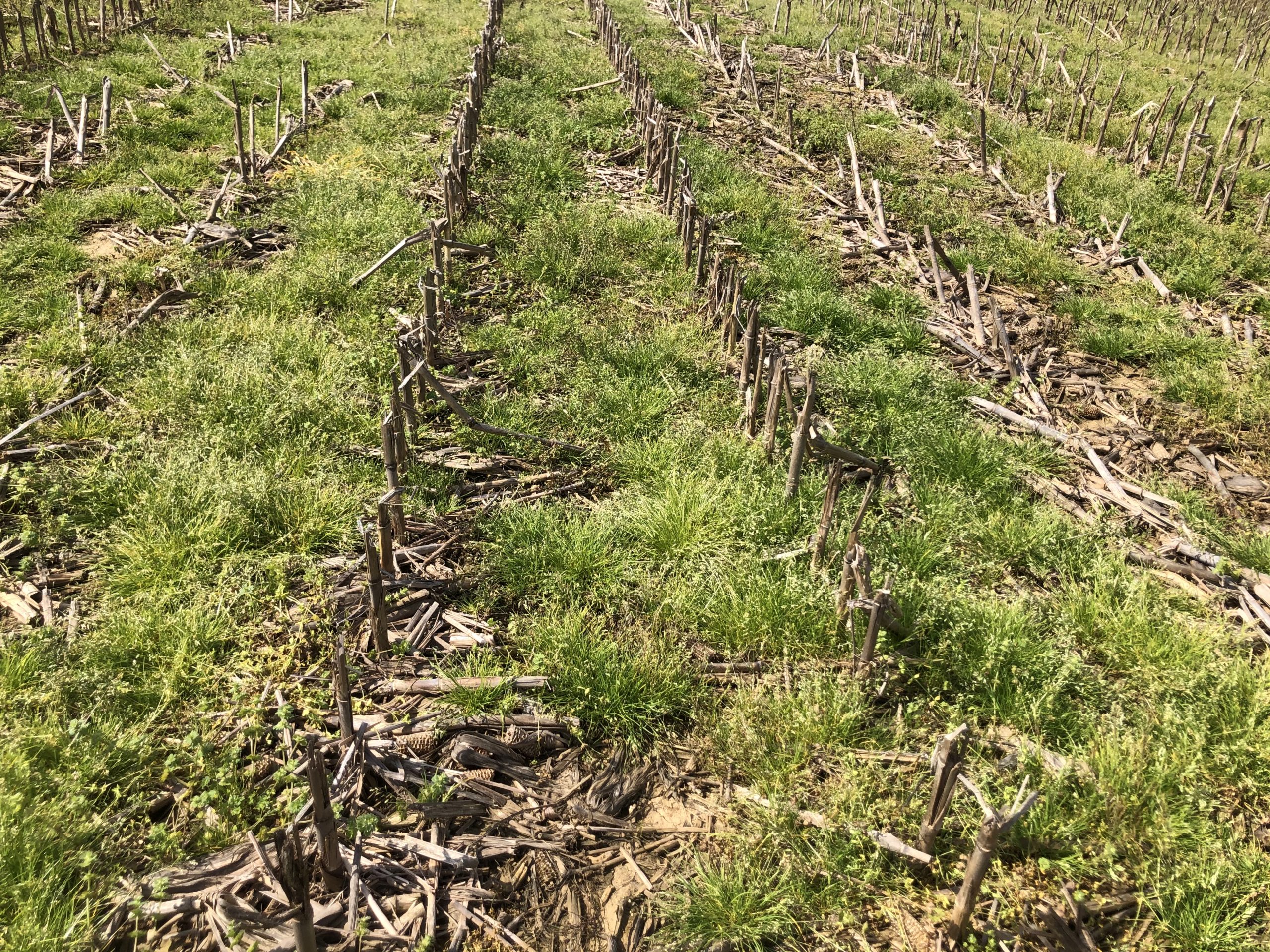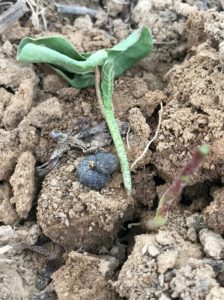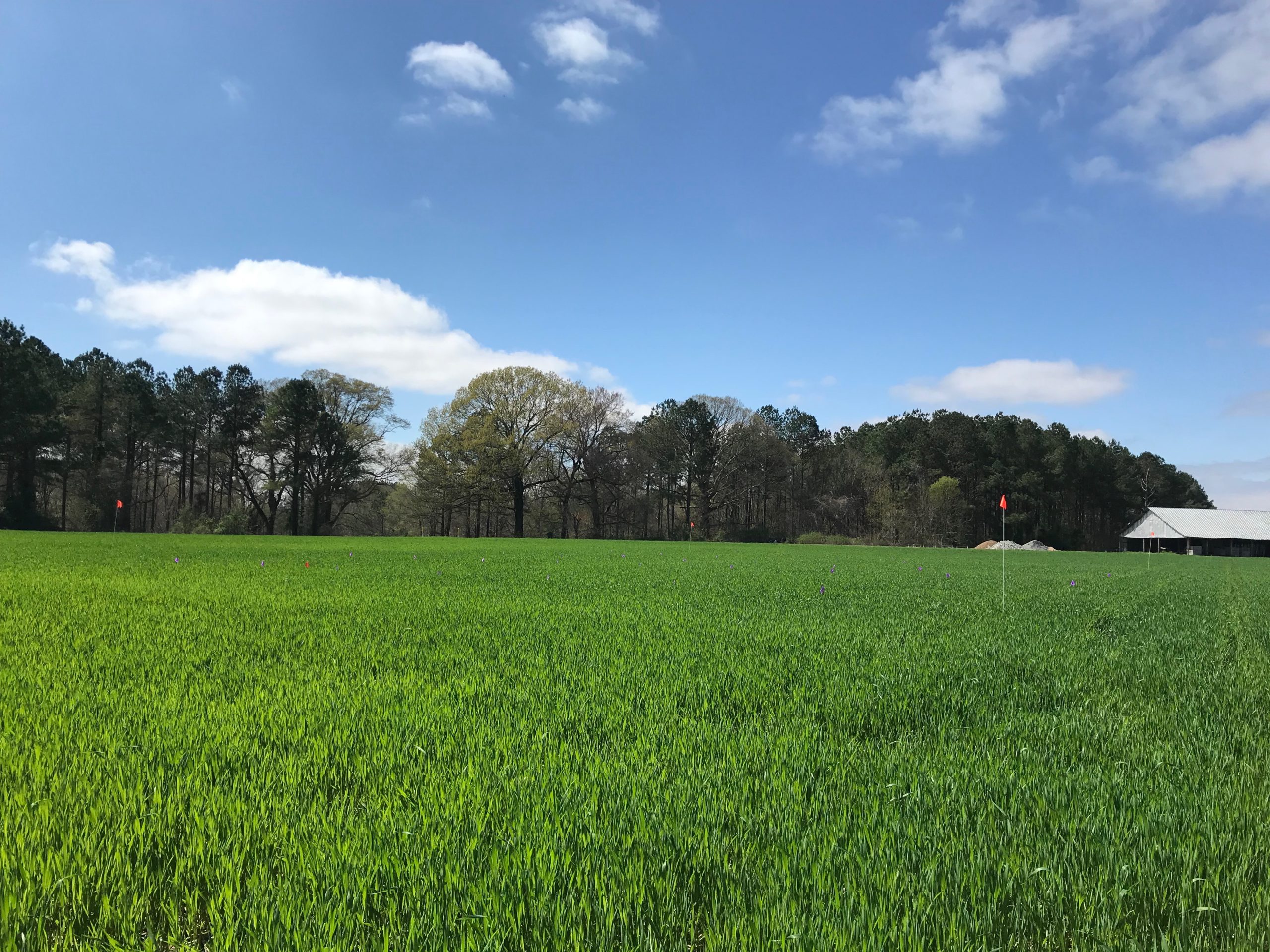In this podcast, Blake Brown, center director of the UT AgResearch and Education Center at Milan, discusses the upcoming No-Till Field Day, which will be offered as an online event in 2020. Listen.
Recent Updates
Poa and Ryegrass Causing Burndown Issues
Poor control of poa (annual bluegrass) and ryegrass have been the common calls of late. This is becoming more common every spring. It would appear that an increasing portion of the poa and ryegrass populations in Tennessee has evolved some level (2 to 4x) of glyphosate resistance.

Soil fertility and nutrient management practices survey
I am Nutifafa Adotey, University of Tennessee’s Soil and Nutrient Management Extension Specialist. A thriving and productive land for subsequent generation is of uttermost importance to every farmer, rancher, or grower. This survey is designed to gather brief but valuable information on some basic production practices in Tennessee. This information will help with the accurate delivery of innovations or interventions on soil fertility that caters to the needs of producers in Tennessee.
Kindly take a few minutes to fill out this survey if you are a producer or share this information with other producers in Tennessee. The survey can also be taken on mobile devices such as the smartphone or tablet. I have contracted with QuestionPro, an independent research firm, to field your confidential survey responses. I would appreciate your feedback in our online survey. Your survey responses will remain confidential and secure. Data will only be used to help build a robust soil and nutrient management extension and research program.
The survey is available at https://utk.questionpro.com/t/AQQL2ZgzJA
I appreciate your trust and look forward to serving you in the future.
Please contact nadotey@utk.edu with any questions.
Wheat Diseases and Fungicide Options
As temperatures warm up, be on the lookout for diseases developing. While disease levels in TN wheat has remained low that can change quickly. This article provides some general info on common wheat diseases one might see and management options.
Minimizing Nitrogen Loss in Row Crop Production Using Nitrogen Stabilizers
Nitrogen (N) fertilization is a costly operation for most row crop producers. Consequently, it is important to implement best management practices (BMP) available for N fertilizer application in order to be profitable. The problem with N fertilizers is their potential to be lost through different N loss pathways: ammonia volatilization, denitrification, and leaching. Spring of 2020 has been generally wet and if this weather pattern continues, farmers should have no problem receiving incorporating rain, minimizing risk for ammonia volatilization from surface-applied at planting N. In TN, most row crop producers split-apply N, with the majority of N fertilizer applied as a sidedress which is closer to the period of high N demand. Since a large portion of N is applied as sidedress, there is the greatest risk for N loss depending on management practice as well as soil and environmental conditions. Continued wet weather might support the use of nitrification inhibitor type products in wetter soils. This blog addresses N stabilizers as a tool to minimize the risk of N loss and ensure that N is available for crops during the period of high demand. Continue reading
Thinking About Insect Pests During Planting Season

There are some basic management practices that can affect, sometimes worsen, and other times be used to reduce risks of insect pest injury. Below, I’ve included some observations and suggestions for your consideration.
As a general rule of thumb (but not universally true), no-till production increases the risk of some problems including pests like cutworm, threecornered alfalfa hopper, slugs, and several below ground pests (e.g., wireworms and white grubs). Of course, tillage is not an option in most areas of Tennessee. Thus, most entomologists suggest Continue reading
Wheat questions on the first of April
**Posted on behalf of Lindsay Stephenson, Haywood County Extension Agent**

As the warmer spring days approach, and hopefully some drier days ahead, planning your next steps on your wheat crop is probably on your to-do list. I spent some time earlier this week reaching out to Extension Agents and Specialists to get their opinions on some commonly asked questions. Below are answers to those questions to help you in your decisions about your wheat.

Correlation between Stock Markets and Cotton Futures
*Posted on behalf of Dr. Aaron Smith. A pdf of this article can be accessed by clicking the title below*
Correlation between Stock Markets and Cotton Futures
By Dr. Aaron Smith, Associate Professor and Charles Martinez, Assistant Professor
Department of Agricultural and Resource Economics, University of Tennessee
Since mid-February, cotton and stock markets have plummeted due to the spread of the COVID-19 virus. The COVID-19 pandemic has reverberated through all sectors of the US and global economies. Probably the most effected of the agricultural commodities is cotton. Cotton is tied closely to global economic activity as, in general, clothing and other apparel purchases are not a necessity and can be delayed, unlike food. For this reason, there is a close correlation between stock markets, such as the S&P 500, and cotton futures (Figure 1). Continue reading

